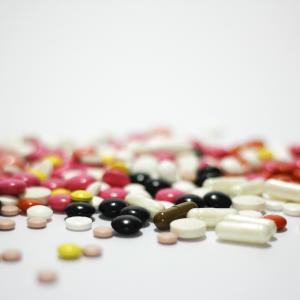Effective Medications For Anxiety Disorders
Anxiety medication is one of the effective treatments for anxiety disorders that have been developed through research. There are two types of treatment available for anxiety disorders: medication and specific types of psychotherapy (sometimes called "talk therapy"). Both approaches can be effective for most disorders. The choice of one or the other, or both, depends on the patient's and the doctor's preference, and also on the particular anxiety disorder.
Evaluation Required Before Treatment
Before treatment can begin, the doctor must conduct a careful diagnostic evaluation to determine whether your symptoms are due to an anxiety disorder, which anxiety disorder(s) you may have, and what coexisting conditions may be present. Anxiety disorders are not all treated the same, and it is important to determine the specific problem before embarking on a course of treatment.
When you undergo treatment for an anxiety disorder, you and your doctor or therapist will be working together as a team. Together, you will attempt to find the approach that is best for you. If one treatment doesn't work, the odds are good that another one will. And new treatments are continually being developed through research, so don't give up hope.
Anxiety Medication: Short-term vs Long-term
Medication, for most people, is the only thing in the short term that is going to help you feel like yourself again. Most medications will most likely take 2 weeks or more before they begin to help you. That's why it is so important that you consult a psychologist, books, or find other sources of information about your condition to help you while your anxiety medication begins to work.
As the medication starts to take effect, you will begin to feel a little more in control of yourself and your thoughts. You need, at that point, to really start to get rid of some stress in your life. You also need to learn how to accept and eliminate the fear on your own terms. Get as much information as you can about the anxiety disorder you have been diagnosed with.
Armed with the knowledge about your condition, and the courage to stay strong, you will soon be feeling like your old self again.
Below a few of the anxiety medications that may be prescribed. Also listed are some alternative and natural remedies that you may find helpful.
Selected Prescription Anxiety Medications
Zoloft (Sertraline)
- Helps major depression, OCD, and panic disorder.
- Side-effects may include but are not limited to, diarrhea and sexual dysfunction.
Wellbutrin (Bupropion)
- Helps major depression and seasonal affective disorder.
- Side-effects may include but are not limited to, headache and trouble sleeping.
Paxil (Paroxetine)
- Helps major depression, OCD, social phobia and panic disorder.
- Side-effects may include but are not limited to, dry mouth, sexual dysfunction, and constipation.
Xanax (Alprazolam)
- Helps anxiety and panic disorders.
- Side-effects may include but are not limited to, diarrhea, dry mouth, constipation, and depression.
Prozac (Fluoxetine)
- Helps major depression, OCD, bulimia nervosa.
- Unfortunately, this drug's side-effects may include but are not limited to, an increase in anxiety, insomnia, and agitation.
Celexa (Citalopram)
- Helps moderate to major depression in adults.
- Side-effects may include but are not limited to, vomiting. This drug has fewer side-effects and drug interactions compared to others and are less expensive.
About Taking Anxiety Medication
Before taking medication for an anxiety disorder: Ask your doctor to tell you about the effects and side effects of the drug. Tell your doctor about any alternative therapies or over-the-counter medications you are using.
Ask your doctor when and how the anxiety medication will be stopped. Some drugs can't safely be stopped abruptly; they have to be tapered slowly under a physician's supervision.
Be aware that some medications are effective in anxiety disorders only as long as they are taken regularly, and symptoms may occur again when the medications are discontinued.
Work together with your doctor to determine the right dosage of the right medication to treat your anxiety disorder.
Natural Remedies
Natural Remedies include:
- Changing your diet.
- Starting an exercise program.
- Music
- Get a pet. Click here for the physical and medical benefits.
- Learning how to control your anger.
- Don't hold guilt for something that has happened in the past.
- Increase your self-esteem.
- Laugh!
- Use relaxation techniques.
- Spiritual Healing - Prayers
- Herbal Remedies - There are quite a few to choose from.
- Aromatherapy
- Vitamins - Some surprisingly reduce stress.
Whatever you and your doctor choose, you will probably experience some setbacks. Meaning that one day you will feel completely healed and the next day you may feel like your starting all over again.
It is during these setbacks that you need to stay in control and use everything you have learned. Don't fear them and don't get discouraged. It might take one or more visits to different doctors to get properly diagnosed.
It is going to take time to eliminate the fear and get in control again. Remember to relax.
Photo: Pexels






